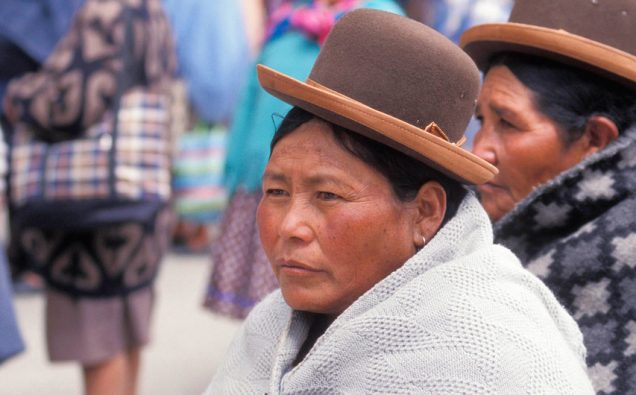
It’s not just about coronavirus-caused health challenges but about exploitation of the situation by vested interests to deprive the indigenous people of their lands and bulldoze through contentious projects that is endangering their future.
Away from the interconnected world, indigenous people are being hit from multiple directions and because of multiple factors including lack of access to information and denial of rights.
“I am receiving more reports every day from all corners of the globe about how indigenous communities are affected by the COVID-19 pandemic and it deeply worries me to see it is not always about health issues”, said José Francisco Cali Tzay, UN expert on the rights of indigenous people said.
The Special Rapporteur – who is a Maya Kaqchikel from Guatemala who took up his post on 1 May – urged Governments worldwide to ensure that indigenous peoples have access to information about COVID-19 in their languages.
Urgent special measures must also be put in place to ensure availability and access to culturally appropriate medical services, he added, emphasizing that public health facilities are often too scarce in indigenous communities.
UN expert José Francisco Cali Tzay is seriously concerned over the devastating impact #COVID19 is having on #IndigenousPeoples beyond the health threat. Learn more: https://t.co/t7gdJhXcvo pic.twitter.com/lJgH0khWa6
— UN Special Procedures (@UN_SPExperts) May 18, 2020
Cali Tzay said that in many countries, states of emergency are exacerbating the marginalization of indigenous communities – and in the most extreme situations, militarization of their territories is taking place.
“Indigenous peoples are being denied their freedom of expression and association, while business interests are invading and destroying their lands, territories and resources”, he said, according to a statement.
In some countries, he stated, consultations with indigenous peoples – as well as environmental impact assessments – are being abruptly suspended in order to force through megaprojects relating to agribusiness, mining, dams and infrastructure.
“Indigenous peoples who lose their lands and livelihoods are pushed further into poverty, higher rates of malnutrition, lack of access to clean water and sanitation, as well as exclusion from medical services, which in turn renders them particularly vulnerable to the disease”, he said.
The impact of #COVID19 on indigenous people goes much further than immediate health worries, says newly-appointed @UN independent expert José Francisco Cali Tzay, himself a Maya Kaqchikel from Guatemala.https://t.co/5GloM6oiP4
— UN News (@UN_News_Centre) May 19, 2020
Indigenous communities that have managed to best resist the COVID-19 pandemic are those that have achieved autonomy and self-government, which allows them to manage their lands, territories and resources, and ensure food security through their traditional crops and traditional medicine, he noted.
“Now, more than ever, Governments worldwide should support indigenous peoples to implement their own plans to protect their communities and participate in the elaboration of nationwide initiatives to ensure these do not discriminate against them”, he said.
He added: “The pandemic is teaching us that we need to change. We need to value the collective over the individual and build inclusive societies that respect and protect everyone. It is not only about protecting our health.”
Cali Tzay was previously the four-term President of the Committee for the Elimination of all forms of Racial Discrimination, which oversees the implementation of the International Convention on the Elimination of All Forms of Racial Discrimination. He is founder of several indigenous organizations in Guatemala, and also once served as his country’s ambassador to Germany.

















